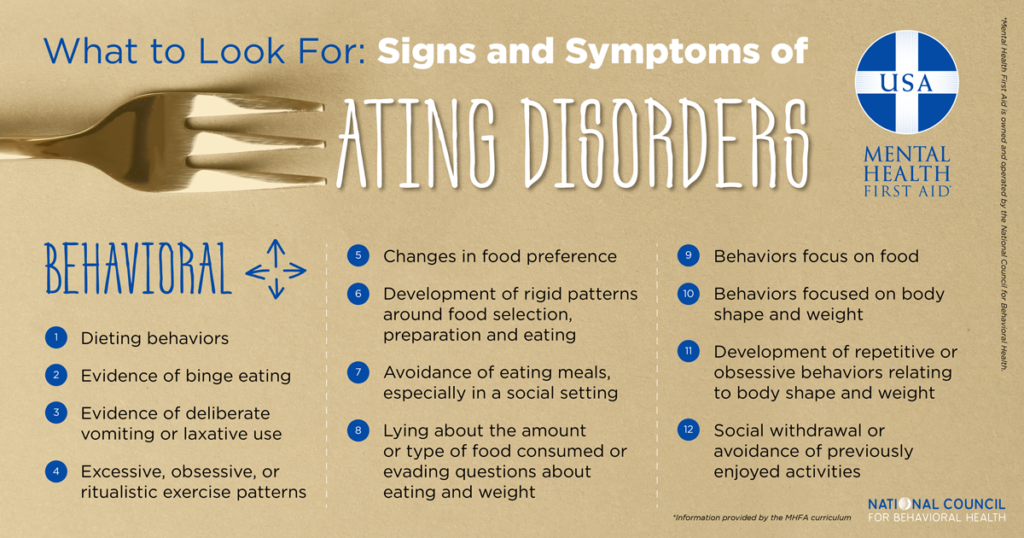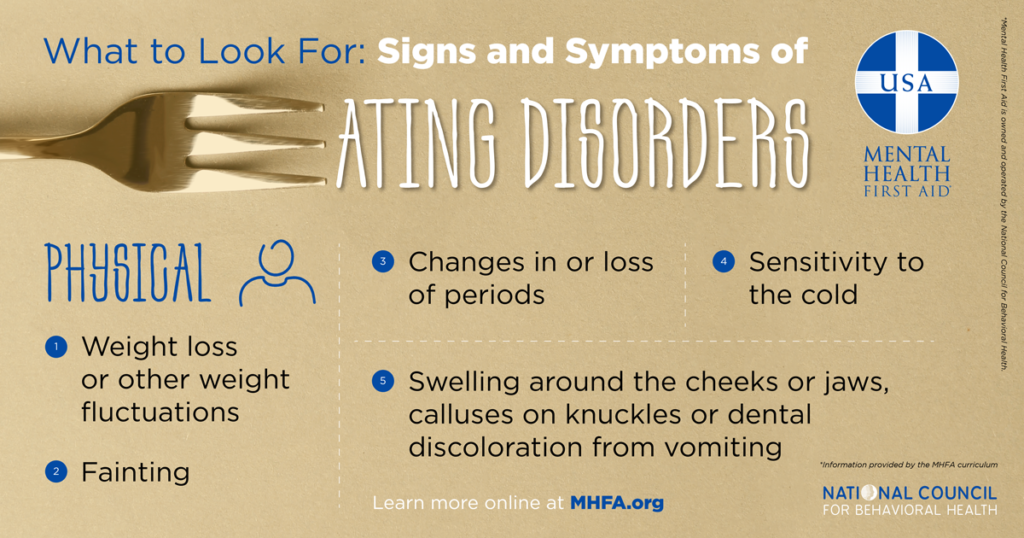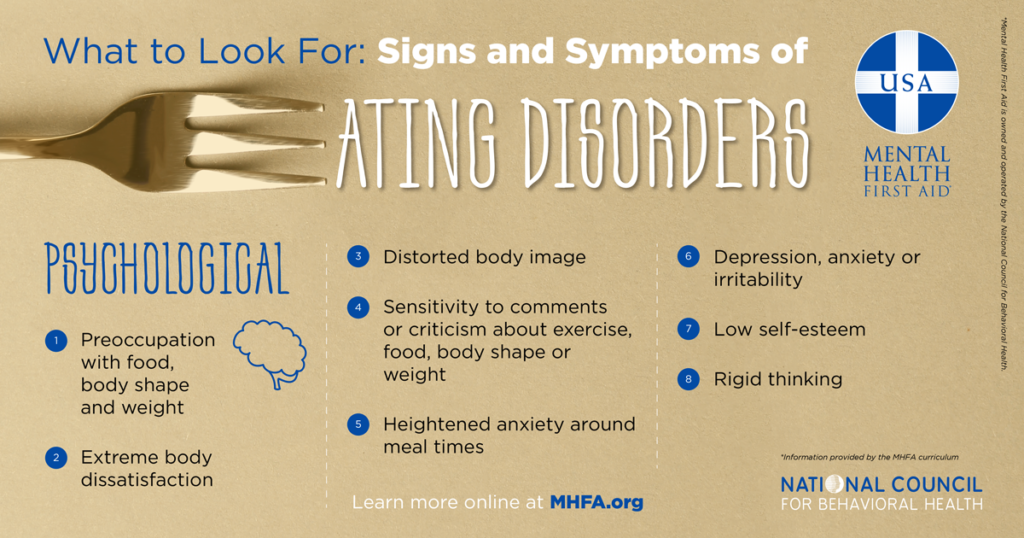For up to 30 million people in the United States, thoughts and emotions related to body image are distorted and can interfere with a person’s daily life as an eating disorder. And among those with eating disorders, less than a third received treatment for a mental health problem in the past 12 months.
But you can help. According to the MHFA curriculum, research has shown that the sooner treatment is started, the more likely the person is to recover from an eating disorder. As a Mental Health First Aider, you can use the knowledge and skills you’ve learned to recognize the signs and symptoms of an eating disorder and help those around you get the support they need as soon as possible.
How to Know if It’s an Eating Disorder
Eating disorders can sometimes be difficult to recognize. A person with an eating disorder might be underweight, overweight or even normal weight. That’s why it’s important to know the signs and symptoms that may indicate someone is struggling:



How to Help Someone With an Eating Disorder
If you suspect someone is struggling with an eating disorder, Mental Health First Aid can help.
Mental Health First Aid teaches you to recognize the signs and symptoms of an eating disorder and how to respond using the ALGEE Action Plan:
Keep in mind that if the person is very underweight, they may not be able to take responsibility for getting professional help, as an eating disorder can affect the person’s ability to think clearly. If you have concerns the person has serious physical health consequences from an eating disorder, you should call emergency medical help and let the medical staff know that you suspect the person has an eating disorder.
To learn more about how to help someone who is struggling with an eating disorder, take a Mental Health First Aid course. The course will teach you how to identify, understand and respond to signs and symptoms of an eating disorder. With the right information and resources, we can support each other and #BeTheDifference in times of need.